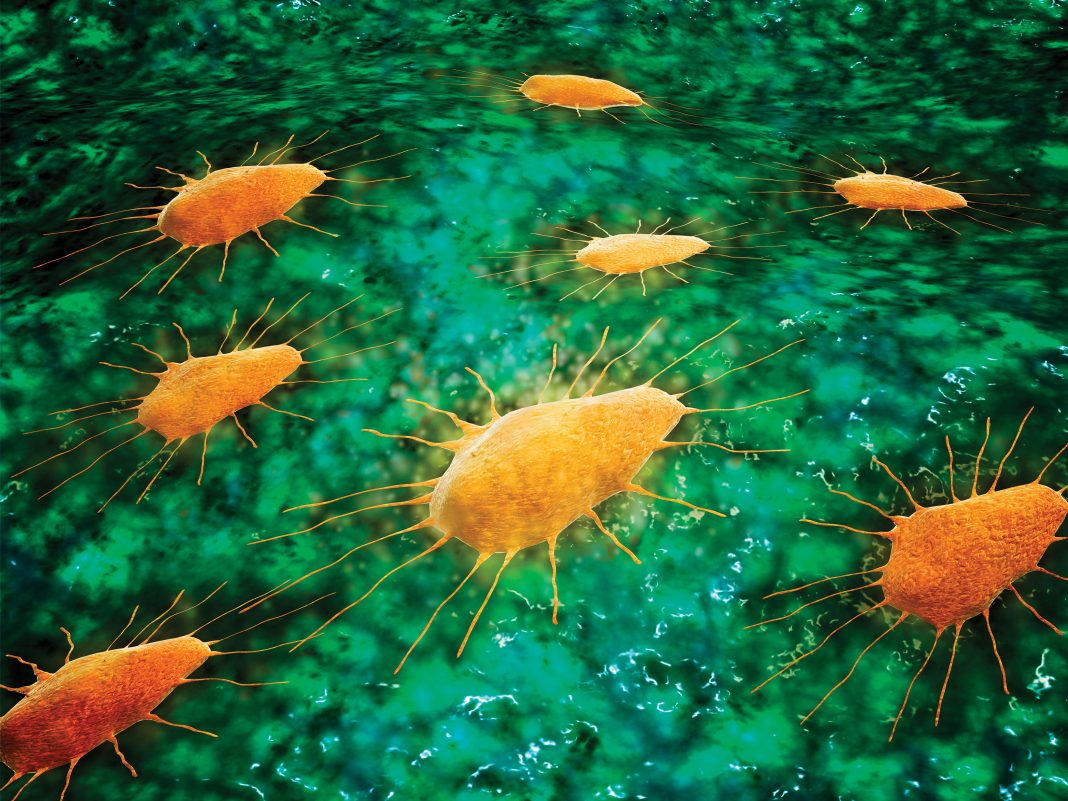Unlike T cells, which readily accept artificial receptors, macrophages reject these enhancements, shunning the viral vectors that carry genetic gifts—specifically, molecular cargo that can “uparm” immune cells and prepare them for cancer immunotherapy applications. Macrophages, however, have proven to be more accepting in experiments conducted by researchers from the Perelman School of Medicine at the University of Pennsylvania.
Macrophages in these experiments not only incorporated chimeric antigen receptors (CARs), they also unleashed their newly acquired firepower to kill tumors in human samples in the lab as well as in humanized mouse models. According to the researchers, their genetically modified macrophages—CAR macrophages—may prove to be especially useful in attacking solid tumors, which often leave CAR T cells exhausted and defeated.
The scientists presented their findings March 23 in the journal Nature Biotechnology, in an article titled, “Human chimeric antigen receptor macrophages for cancer immunotherapy.” The article explains that the scientists chose to pursue macrophages as an alternative to T cells because macrophages can penetrate tumors and possess “unique effector functions.”
Macrophages eat invading cells rather than targeting them for destruction the way T cells do; while T cells are more like a game of Space Invaders, macrophages are like Pac-Man.
Macrophages also have another key difference from T cells in that they are the body’s first responders to viral infections. This has historically presented challenges in trying to engineer them to attack cancer, since macrophages are resistant to infection by the standard viral vectors used in gene and cell therapy.
“We have known how to engineer T cells to do this for years, but the fact that macrophages are innately resistant to the viral vectors that we use in our CAR T cells presented a unique challenge, which we show here we were able to overcome,” said the study’s senior author Saar Gill, MD, PhD, an assistant professor of hematology-oncology and a member of Penn’s Abramson Cancer Center.
“We found that a chimeric adenoviral vector overcame the inherent resistance of primary human macrophages to genetic manipulation and imparted a sustained pro-inflammatory (M1) phenotype,” the authors of the Nature Biotechnology article wrote. “CAR macrophages (CAR-Ms) demonstrated antigen-specific phagocytosis …
“[Characterization] of CAR-M activity showed that CAR-Ms expressed pro-inflammatory cytokines and chemokines, converted bystander M2 macrophages to M1, upregulated antigen presentation machinery, recruited and presented antigen to T cells, and resisted the effects of immunosuppressive cytokines.”
Macrophages are generally among the first cells to be drawn in by cancer, and they are exploited to help tumors instead of eating them. However, the research team showed that when the viral vector is inserted, not only do the engineered macrophages express the CAR, they also transform into highly inflammatory cells. This transformation allows macrophages to resist being co-opted by tumors.
Researchers say CAR macrophages may also be able to stimulate the rest of the immune system as they attack, potentially opening the door to a greater immune response.
“Finding ways to draw the rest of the body’s powerful immune system into the fight would mean an even greater impact than what a cellular therapy can do on its own,” said the study’s first author Michael Klichinsky, PhD, who was a graduate student at Penn while he completed the work. “Our future research will include efforts to better understand this possibility and how we might be able to exploit it to kill cancer.”
This paper represents the culmination of Klichinsky’s graduate career in Gill’s lab. Klichinsky and Gill have already co-founded a company, Carisma Therapeutics, to further develop the CAR macrophage approach.


